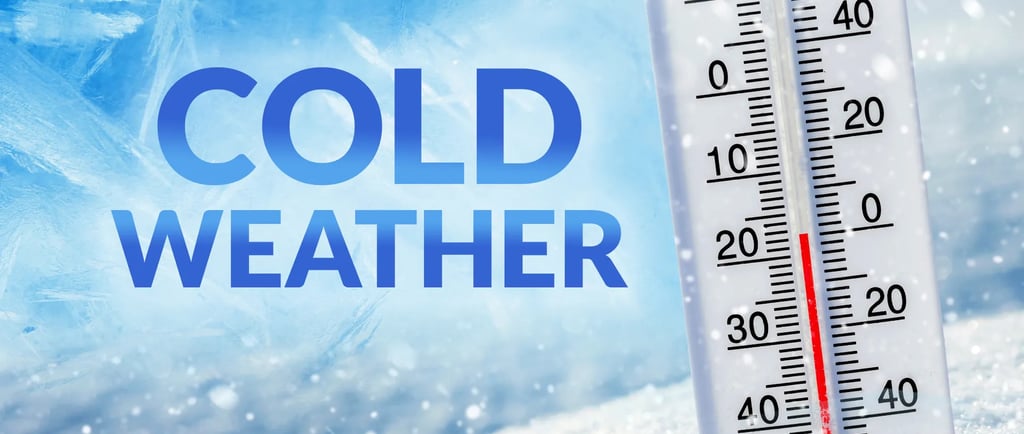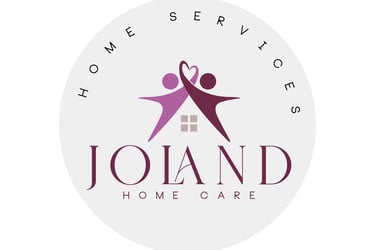Caring for Seniors in Cold Weather: Essential Tips
This blog from JoLand Home Care provides essential tips for caring for seniors during the winter months. It covers key areas like maintaining warmth, preventing falls, ensuring proper hydration and nutrition, supporting mental well-being, and preparing for emergencies. With these practical suggestions, JoLand Home Care aims to help families keep their elderly loved ones safe, comfortable, and healthy during the colder season.
HOME SERVICESSUPPORTIVE CAREWINTER WEATHERSENIORS
Charmaine Landingham
1/27/20253 min read


As temperatures drop and winter sets in, the elderly population becomes particularly vulnerable to the cold. At JoLand Home Care, we understand the unique challenges that winter poses for senior health and well-being. With proper care, attention, and a few adjustments, we can help ensure that your loved ones stay safe, warm, and comfortable during the colder months. Here’s a look at key areas to focus on when caring for seniors during winter:
1. Temperature Control and Comfort
Older adults are more sensitive to temperature changes, and prolonged exposure to cold can lead to serious health issues like hypothermia or frostbite. Ensuring a warm and consistent indoor temperature is essential.
Heating: Make sure that the home is kept at a comfortable temperature, typically between 68°F and 72°F (20°C to 22°C). Check that heating systems are in good working order.
Layering: Encourage wearing layers of clothing. Thermal socks, wool sweaters, and hats can help keep warmth in.
Warm Bedding: Ensure that blankets and sheets are warm, but not too heavy. Heated throws or electric blankets (used safely) can be a great option.
2. Preventing Falls
Winter often brings icy sidewalks and wet conditions, making falls more likely. Inside the home, the risk of slips and falls increases due to wet floors from boots or shoes.
De-icing Walkways: If possible, ensure that the paths outside the home are free of ice or snow. Apply salt or sand, or ask for help if needed to clear walkways.
Indoor Safety: Keep the floors dry inside. Have mats near doorways for wiping off snow or water from shoes, and ensure that these mats are non-slip.
Assistive Devices: If your loved one uses a walker or cane, make sure the rubber tips are in good condition for traction.
3. Monitoring Health and Hydration
Cold weather can sometimes mask underlying health concerns, and dehydration is a common issue, even in winter.
Hydration: Encourage your loved one to drink enough water, even if they don’t feel thirsty. Dehydration can cause headaches, dizziness, and other complications.
Health Monitoring: Cold temperatures can exacerbate conditions like arthritis, respiratory issues, or heart problems. Regular check-ins with healthcare professionals are important, especially during the colder months.
4. Healthy Nutrition
A nutritious diet is crucial, particularly when the weather affects appetite or digestion. Warm, comforting foods like soups and stews can be both nourishing and cozy.
Balanced Meals: Ensure that meals are balanced and include plenty of fruits, vegetables, and lean proteins. Include foods high in vitamins, like vitamin D, which can be especially helpful during the winter months when sunlight is scarce.
Warm Beverages: Hot teas, broths, and other warm beverages are not only comforting but can also help with hydration and improving circulation.
5. Mental and Emotional Well-being
The winter months can be especially difficult for seniors who might already be facing isolation, limited mobility, or depression. At JoLand Home Care, we believe it’s important to maintain a sense of community and connection.
Stay Connected: Regular visits or phone calls from family members and caregivers can combat loneliness. Video chats or virtual activities can also help seniors feel engaged.
Physical Activity: Gentle exercises like stretching or indoor walking can help seniors stay active and maintain a sense of routine.
Mental Stimulation: Encourage hobbies that stimulate the mind—reading, puzzles, or even crafting—can help keep spirits high and minds sharp.
6. Emergency Preparedness
It’s essential to be ready for unexpected winter storms or power outages. Ensuring your elderly loved one’s safety includes taking steps to prepare for these situations.
Emergency Supplies: Keep an emergency kit with essentials like extra blankets, a flashlight, batteries, non-perishable foods, and medications.
Power Outages: If there’s a risk of power loss, consider having a backup heat source, such as a portable heater, and ensure that smoke detectors and carbon monoxide alarms are functioning properly.
Winter Storm Plan: Have a plan in place for snow removal, transportation, and emergency contacts in case mobility becomes an issue during a storm.
7. Professional Care and Support
While families play a crucial role in providing winter care, the expertise of trained caregivers can offer peace of mind. JoLand Home Care offers professional support tailored to your loved one’s needs, helping with daily tasks, medication reminders, and ensuring that they are safe and comfortable throughout the winter.
At Joland Home Care, we understand that every senior is unique, and winter poses specific challenges for each individual. By focusing on warmth, safety, nutrition, and emotional well-being, we can work together to ensure that your loved ones are well taken care of throughout the cold season. If you’re looking for help with senior care this winter, don’t hesitate to reach out to us for personalized support and care.
Stay warm, stay safe, and let JoLand Home Care provide the assistance you need during these colder months.
JoLand Home Care
Contact
Mon-Fri 9:00AM - 3:00PM CST
Sat-Sun CLOSED
Contact us today for inquiries or to schedule your FREE assessment!


© By JoLand Home Care. All rights reserved. Designed By Prolifik Graphics
